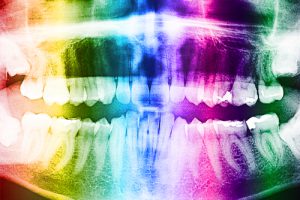Maybe you used a pacifier for too long as a child. Perhaps you sucked your thumb. Or maybe you were simply born with an overbite that was exceptionally cute when you were a toddler but is driving you crazy as an adult. Whether you dislike the appearance of your teeth, feel your overbite draws too much attention to your mouth, or are having painful jaw problems, Invisalign could be the solution to a great number of your oral health complaints.
4 reasons why so many people love Invisalign >>
Types of Overbite Problems
All bite problems are not obvious to other people, but they are certainly obvious to you, the owner of the bite problem. The position of your bite impacts how well you are able to speak and form words, chew food, and, in some cases, your bite also affects your appearance.
Types of overbite problems can include:
- Horizontal overbite: Teeth that jut out in front of the bottom teeth.
- Vertical overbite: Top front teeth overlap the lower front teeth vertically when biting.
- Skeletal overbite: Caused by the abnormal placement of the jawbone.
- Dental overbite: Caused by irregular spacing between the teeth.
Whether the bite problem is caused by the teeth or the placement of the jaw will have a direct impact on the kind of orthodontic treatment that is recommended for correcting the issue.
Problems that can be caused by a bad bite include:
- Joint-related issues
- Headaches and migraines
- Muscle and jaw pain
- Arthritis
- Dysfunctional chewing pattern
- Worn teeth, leading to cavities and gum disease
- Damaged fillings or cosmetic dentistry
- Digestion problems
- Lisps or other speech impediments
Uneven growth can be the cause of an overbite, it may be hereditary, or lingering childhood habits could have caused the problem. It doesn’t matter what age you are or what oral health problems you’re experiencing, you will never know unless you ask whether Invisalign can help your smile. And, if Invisalign – or any other orthodontic treatment – can repair the overbite that makes you self-conscious or uncomfortable, the treatment will be worth its weight in cold once complete.
Could Invisalign help Olympic swimmer Michael Phelps? >>
How Invisalign Can Correct a Bad Bite
Invisalign is considered by many to be a miracle orthodontic treatment. You get the amazing benefits of braces without the unappealing look of traditional metal brackets and wires, and you can still eat whatever you want without restrictions. Invisalign is able to correct pretty much any orthodontic problem that metal braces can, including spacing issues, misalignment, crowding, shifting teeth, and more.
The constant, gentle pressure of Invisalign trays on the teeth – which move only a few teeth at a time – promote better alignment and a better bite. Invisalign works for many people and relieves and eliminates the bite problems they’ve suffered with for years (plus more). Your dentist, however, will be the expert who decides whether you are indeed a good candidate for Invisalign and whether your overbite problem will respond to Invisalign treatment. Ultimately, you want to know that your condition is treatable. Whether repairing your bad bite so that you have a pain-free smile you can be proud of involves Invisalign or not, the most important thing to do is put your oral health first.
Even if Invisalign isn’t the right solution for your bite problems, orthodontics can help solve the aesthetic and functional concerns that plague your mouth and smile. Make an appointment with Dr. Carole Sherrod Jewell at Red Bank Dentistry to find out where your bite stands when it comes to Invisalign treatment.



